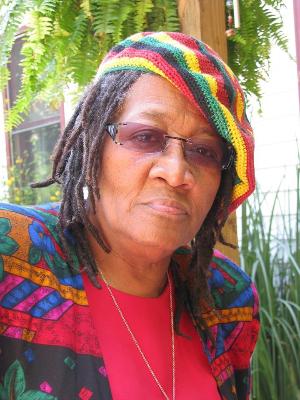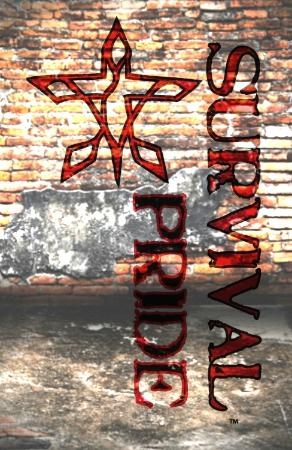Faustine Wilson is the owner of Survival Pride Clothing in downtown Sylva. She’s also the daughter of the late author Victoria Casey McDonald. McDonald was a historian, beloved teacher at Smoky Mountain Elementary School and writer of historical novels such as Under the Light of Darkness, Just Over the Hill and Living in the Shadow of Slavery. Wilson and McDonald shared an inspiring mother-daughter bond, and Wilson reveals that her mother taught her the life-changing lesson which is now the motto of her clothing brand: “Never forget the roots from which you came: ultimately, your roots shape your future.” Wilson has been presenting her mother’s last book, Living in the Shadow of Slavery, at bookstores in the area as well as talking about the history of African-Americans in Western North Carolina.
Wilson gives a presentation at Blue Ridge Books in Waynesville on Saturday, June 27, at 3 p.m.
Mountain Xpress: How did you discover Victoria’s final novel and how did you get involved in presenting it at bookstores on her behalf?
Faustine Wilson: When my mother passed away I knew about the novel but not what stage of the process it was in. My mother and her friend Sara always did the first edit on her books and when she passed, Sara was actually making her way to come pick up the book. I knew by proceeding with publishing the book that this was part of her legacy that needed to be available. If anyone was going to keep her hard work alive and continue her legacy, it needed to be me.
What kind of relationship did you have with your mother?
Our mother-daughter relationship was an unbreakable bond in every sense of the word. My mother wasn’t just my mother but my best friend, ride-or-die partner in life, hero, inspiration and role model. She had such an amazing youthful spirit and glow about her. Her book writing and research inspired me to know my history and be proud of who I am and where I come from.
Can you tell us a little about the story in these books and what they mean to you from a literary and a personal perspective?
These two books give you the point of view of a slave which you don’t see in many books [or] novels written in that time period. You get to walk in Amanda and Bill’s footsteps as they face the challenges of love during slavery, and learn about the world and each other in Under the Light of Darkness. As slavery ends, Amanda and Bill try to figure out their place in the world and how to make a living for themselves. Reading Living in the Shadow of Slavery captured my attention because of the struggles they went through just to be seen as people after slavery, how even through the struggles they keep their eyes on the prize.
Your clothing store Survival Pride specializes in streetwear/lifestyle clothing that tells a story. What brought you into that business and what kind of story are you trying to tell with your clothes?
Survival Pride was created out of a tragedy that became my triumph. My brother Creighton O. Casey passed away in 2004 due to complications of sickle cell. I got my emotions out by creating a memorial design in his honor. The design was presented to my mother in 2007, on a t-shirt with what is now “God’s Compass,” the logo for Survival Pride. In 2008, Survival Pride the streetwear/lifestyle brand was officially born with the goal and message of having pride in what you have: Survive, endure, overcome in life.
Through clothing I get to tell not just my story but everyone’s story and how beautiful life is despite your struggles. I get to bring awareness to different disorders like breast cancer, cancer in general, and sickle cell anemia which I also have. I tell a story of triumph over the tribulations everyone faces in some way. Not only do I celebrate triumph out of struggle through illness but I am the first African-American to own a business in downtown Sylva.
What do you consider to be Victoria’s legacy and how do you intend to keep that legacy alive?
For almost 30 years Victoria Casey McDonald touched many children’s lives through teaching and coaching at Smoky Mountain Elementary. Those children are now adults and are better off because they had her in their lives, as I have been personally told from hundreds of students. Her legacy will be kept alive through my book readings and speaking engagements, talking about her research and about African-Americans in Western North Carolina from slavery to integration. I plan to do yearly speaking engagements during Black History Month to ensure her research and knowledge is passed on to the next generation for years to come.






Before you comment
The comments section is here to provide a platform for civil dialogue on the issues we face together as a local community. Xpress is committed to offering this platform for all voices, but when the tone of the discussion gets nasty or strays off topic, we believe many people choose not to participate. Xpress editors are determined to moderate comments to ensure a constructive interchange is maintained. All comments judged not to be in keeping with the spirit of civil discourse will be removed and repeat violators will be banned. See here for our terms of service. Thank you for being part of this effort to promote respectful discussion.